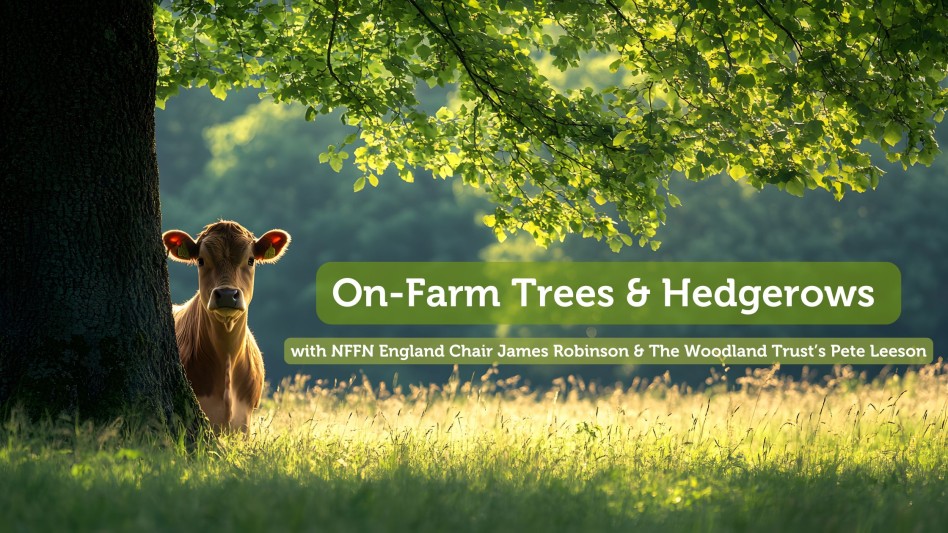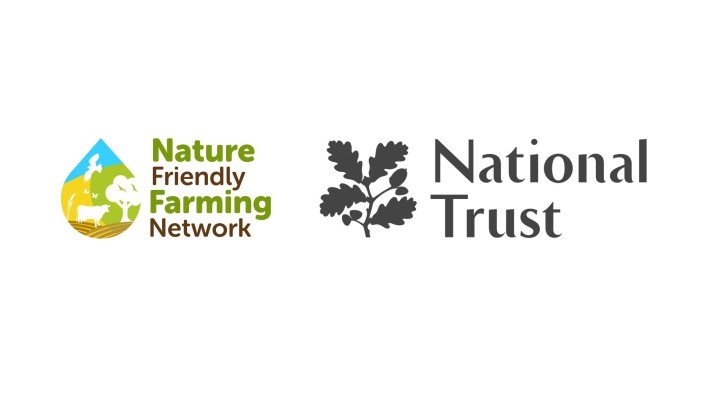Trees offer a wealth of not only ecological, e.g. carbon storage and habitat creation, but also economic and social benefits too, and as such there is currently a huge push across the UK to plant more trees.
The targets set out in the Government’s Environmental Improvement Plan state that tree cover in England should increase from 14.5% to 16.5% by 2050, and the expectation is that the majority of these trees will have to be planted on private land.
Farmers will be key to delivering this increase in tree cover in England, through improving and maintaining old hedgerows and woodlands, alongside establishing new areas of tree cover e.g. silvopasture and silvoarable systems and through the creation of new areas of woodland.
Adding trees into the farmed landscape offers a range of benefits including:
Carbon capture
Natural pest management
Flood risk management
Improved soil, water and air quality
Improved animal health, fertility and reduced morbidity
Providing shelter for livestock and crops
Improved biodiversity and habitat connectivity
Potential revenue stream from the timber
The focus of this workshop is therefore to explore approaches to management of trees in the farmed landscape. In this workshop you will learn:
Benefits of on-farm trees
Management approaches for trees and hedgerows on-farm
What a healthy hedgerow/woodland looks like
Practical guidance on establishing and maintaining hedgerows and trees
Creating whole-farm tree management plans
A buffet lunch and refreshments will be provided.
Listen to Pete’s Tree Amble podcast episode with our farmer host James Robinson:
Podbean: https://treeamble.podbean.com/e/james-robinson-nature-friendly-farmer/
Spotify: https://open.spotify.com/episode/47mNIVLlZEtfslMxAoi7BK?si=uVp06iViRoSj2m3iaH8OLg
Additional Info:
As there are livestock on the farm, we kindly ask that attendees do not bring dogs with them to the farm.
We also request from a biosecurity perspective that all attendees bring with them a pair of easily disinfectable boots that they can wear when walking around the farm.
Part of the session will be conducted out of doors, in a field which is a 10 min walk from the yard. For those with mobility issues, please let us know if you will require assistance and alternative arrangements can be made to get you to the field.
Finally, due to limited parking spaces in the yard, we would ask that where possible attendees attempt to car-share.
James Robinson
The Robinsons have farmed at Strickley in south Cumbria for almost 150 years. James and his family now have 300 acres of organic land with 130 pedigree Dairy Shorthorns and 130 followers. His herd graze meadows, permanent pasture and herbal leys in small fields surrounded by seven miles of ancient hedgerows. These hedgerows are managed in a traditional twenty-year rotation of hedgelaying, and link a mixture of diverse habitats such as wetlands, species-rich hay meadows and ancient oak woodland.
Pete Leeson
Pete is a chartered surveyor and has worked at the Woodland Trust for 30 years. About half that time he spent acquiring land / woodland for conservation projects in Northern England and Northern Ireland for the Trust. He changed 15 years ago to focus time advising landowners on woodland, hedge, wood pasture and other habitat creation. I have worked with all sorts of people creating wetlands, woodlands, wildflower projects and now have a special interest in regenerative agriculture. To celebrate 30 years in conservation, Pete has produced a podcast series called Tree Amble where he talks to farmers, land managers, ecologists about managing land for food, people and nature.
In partnership with...



